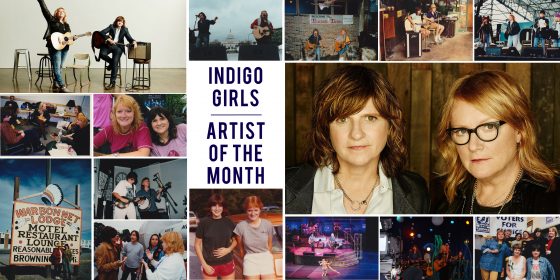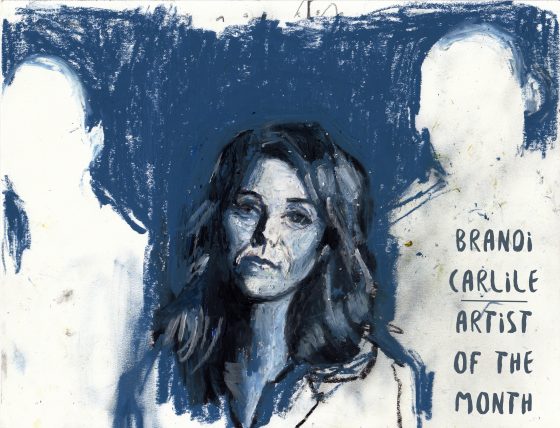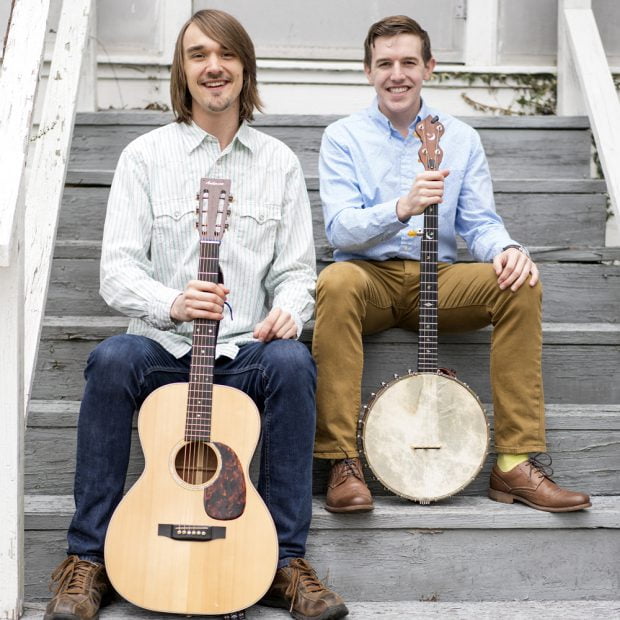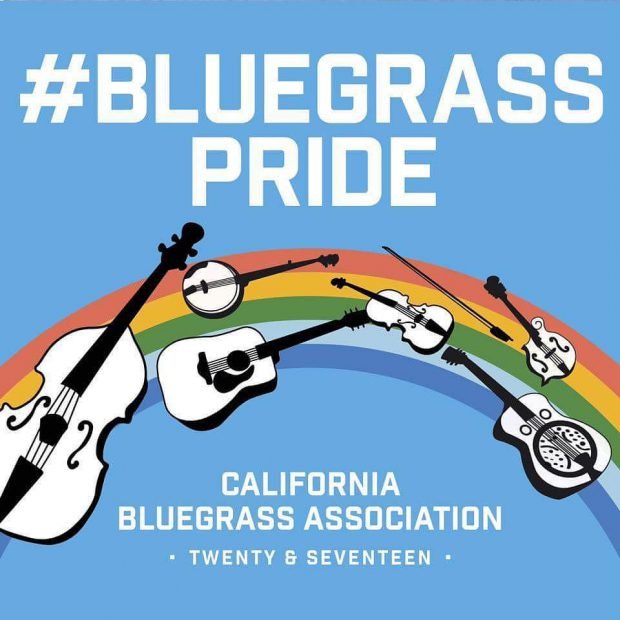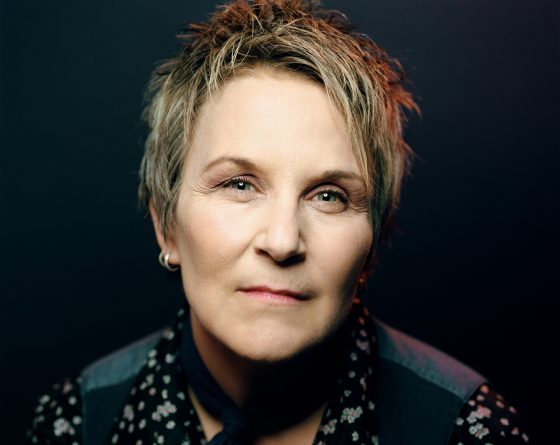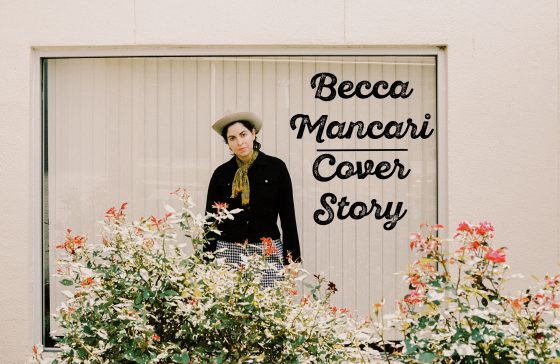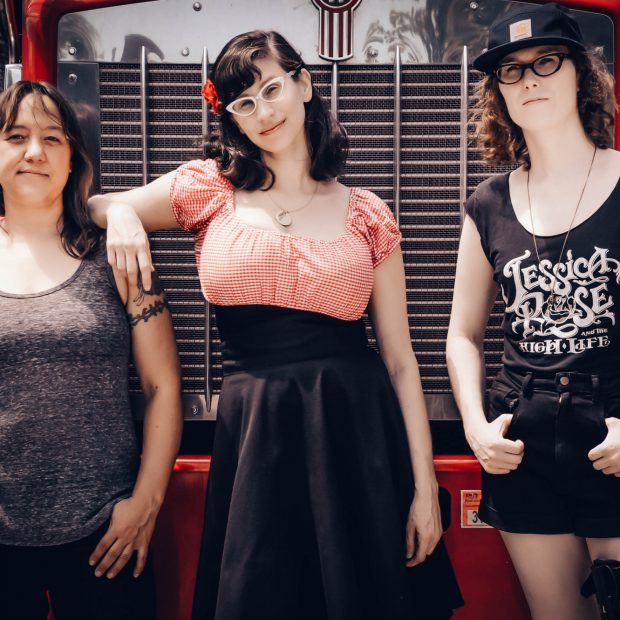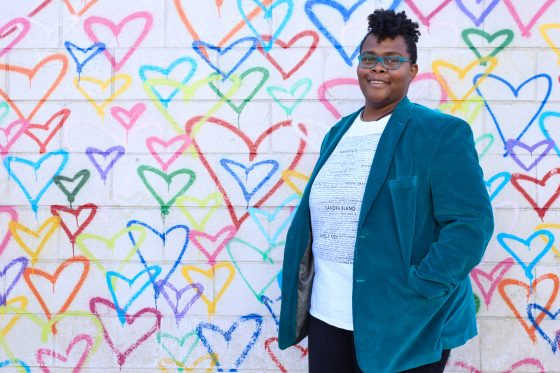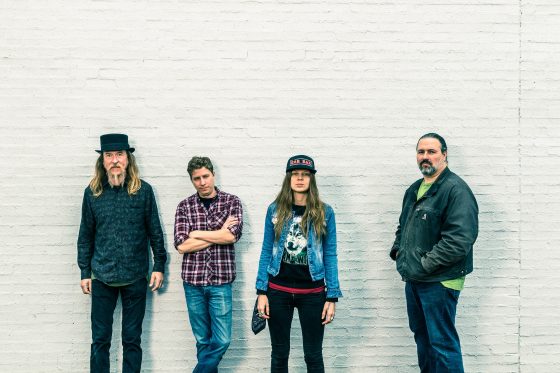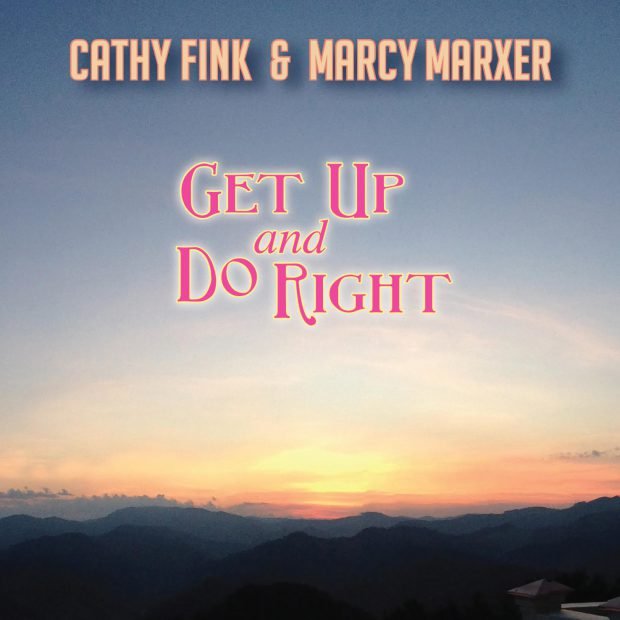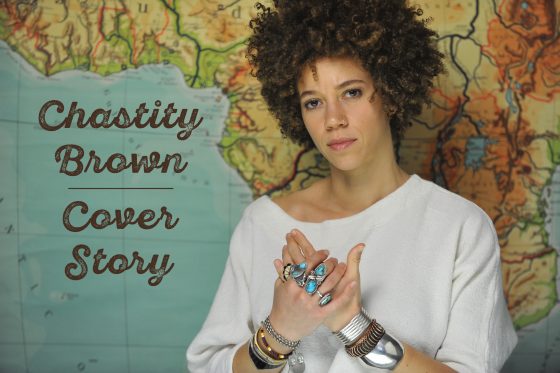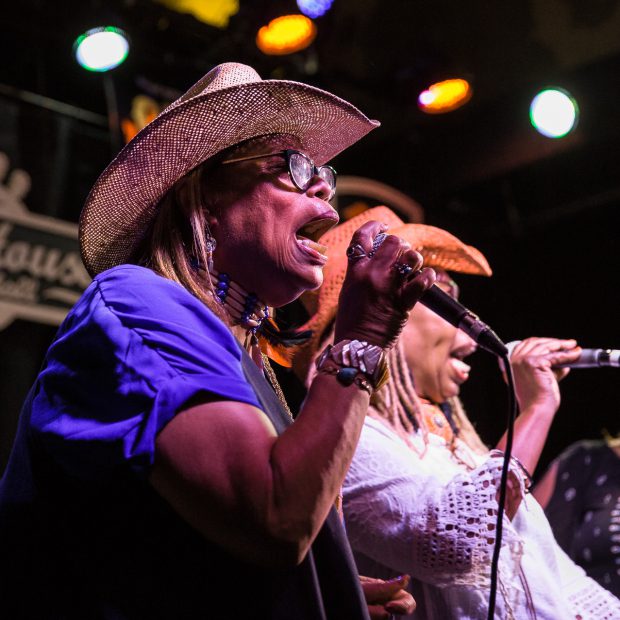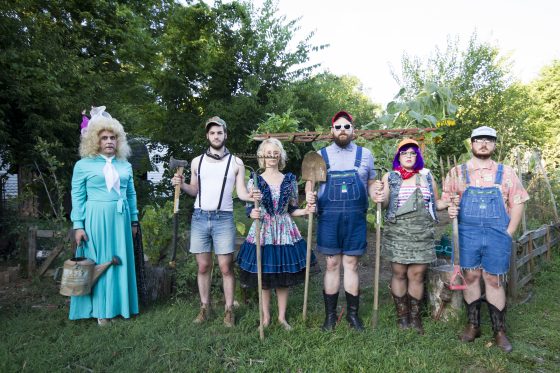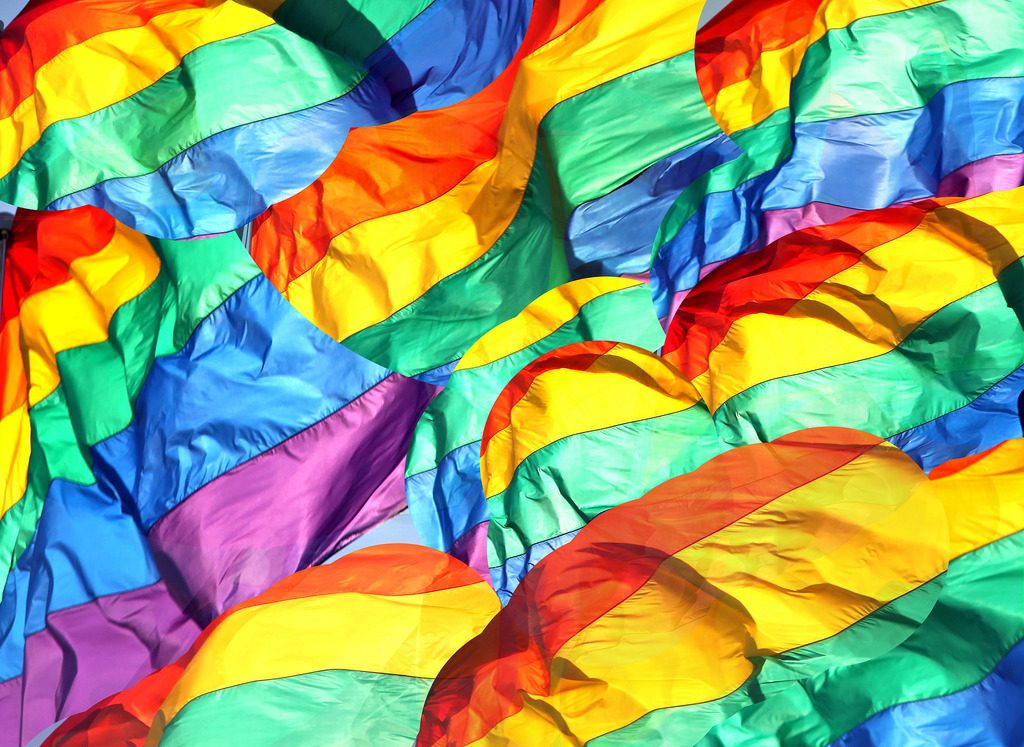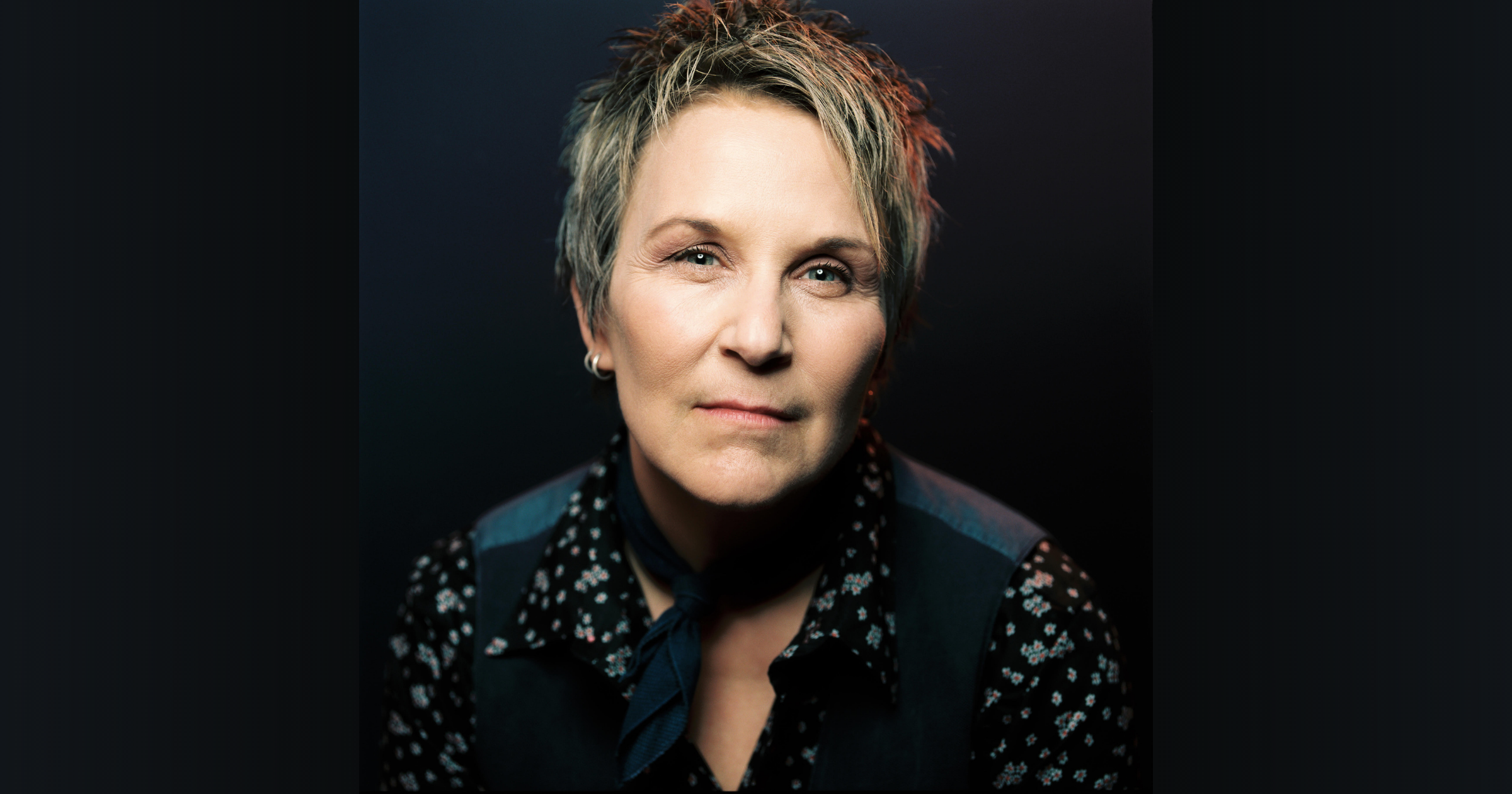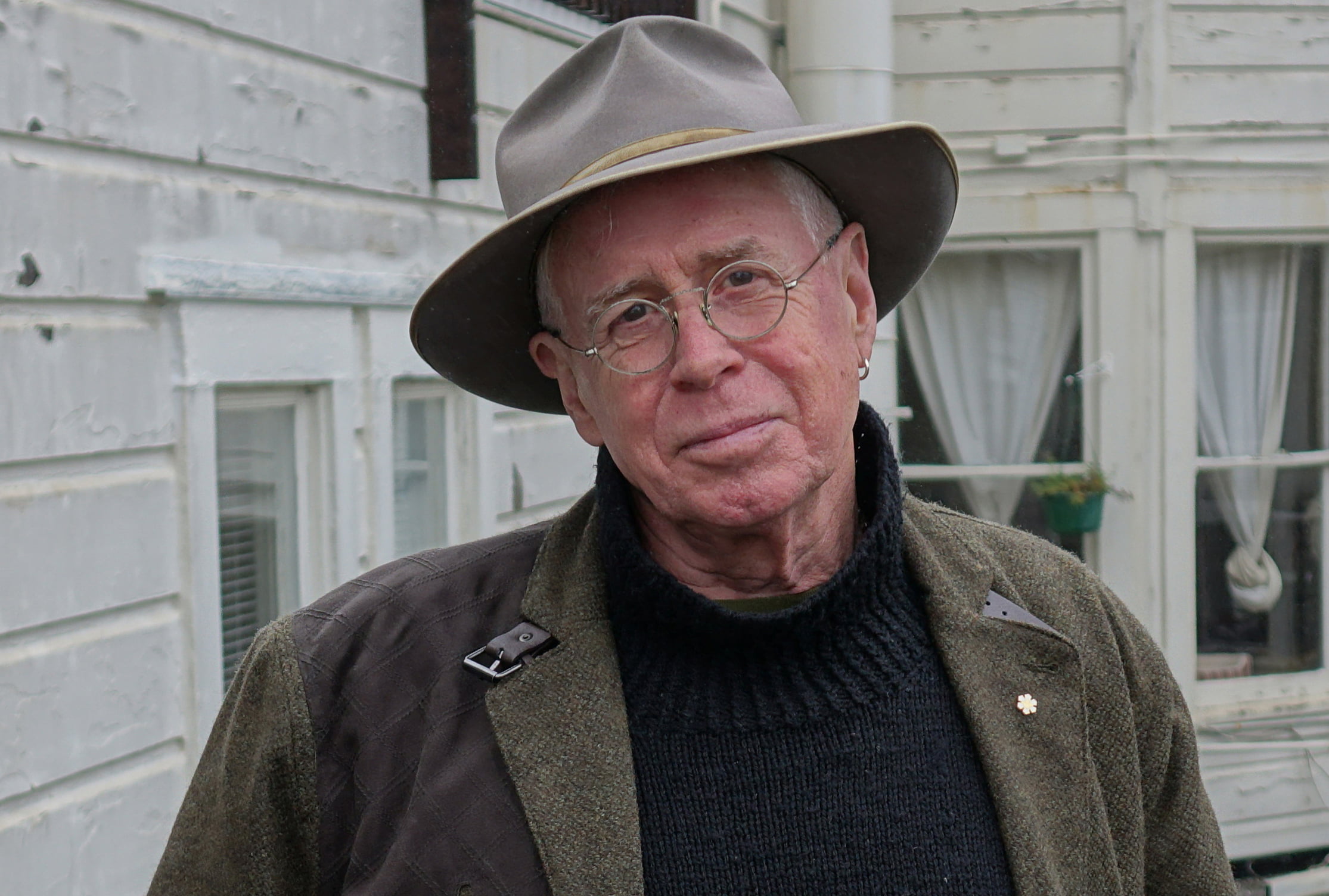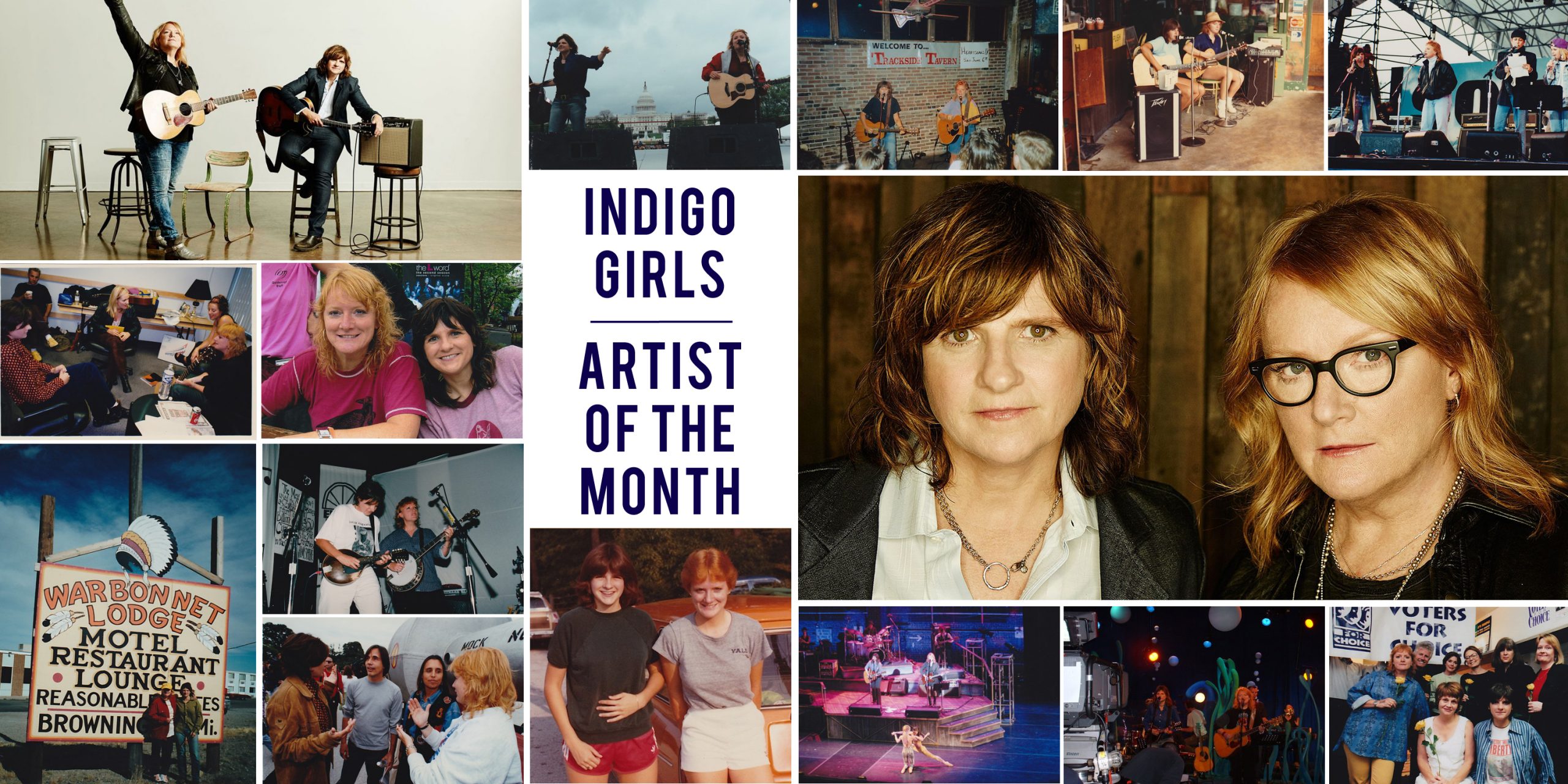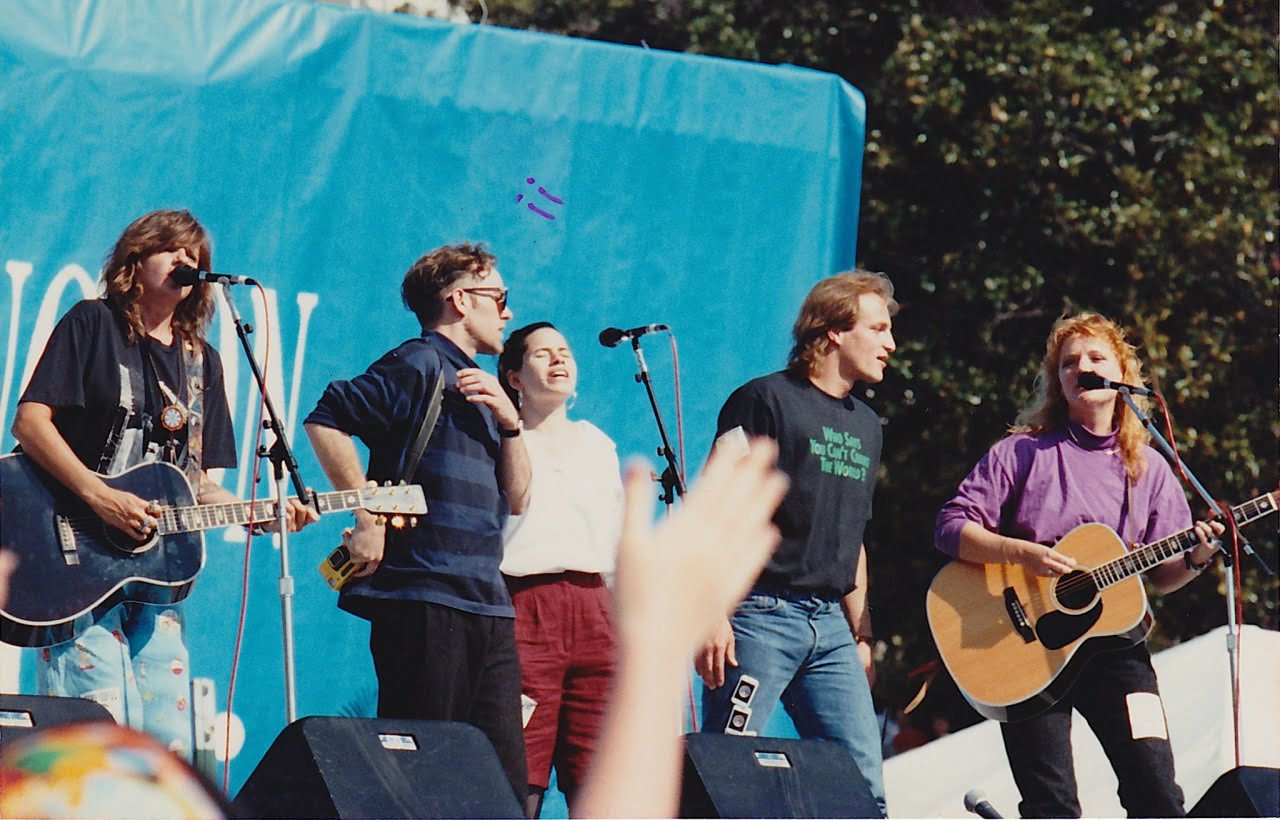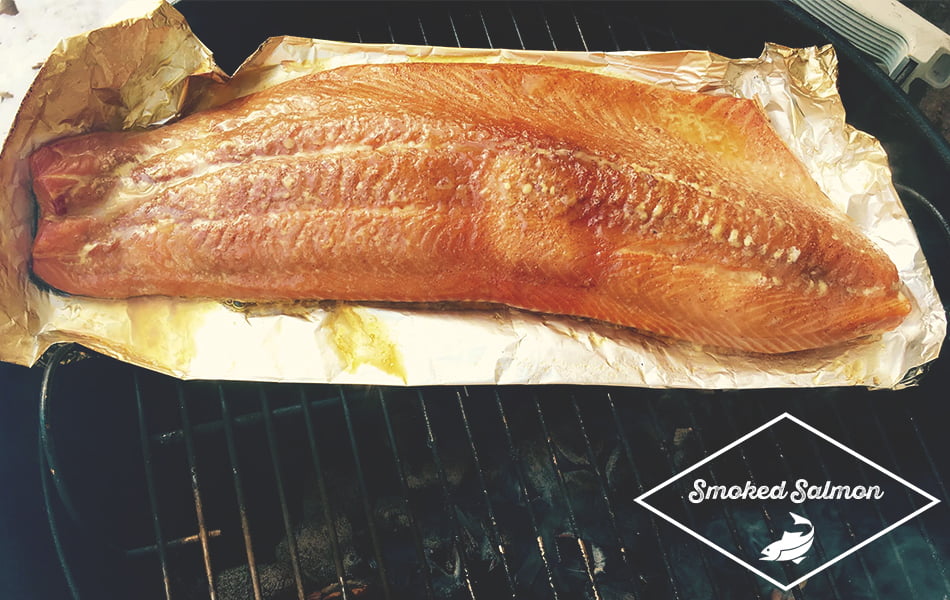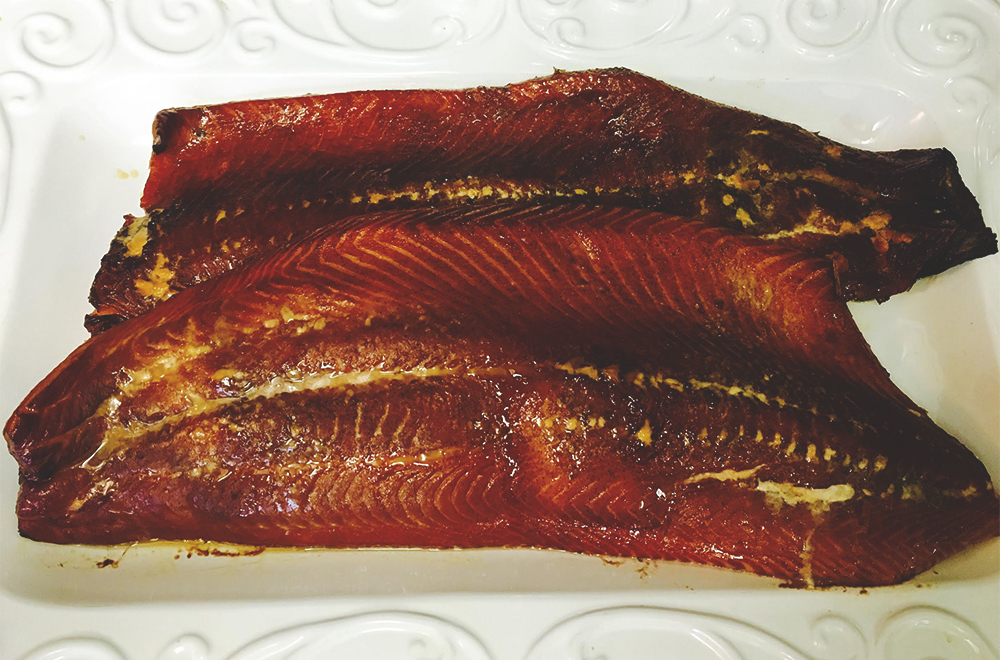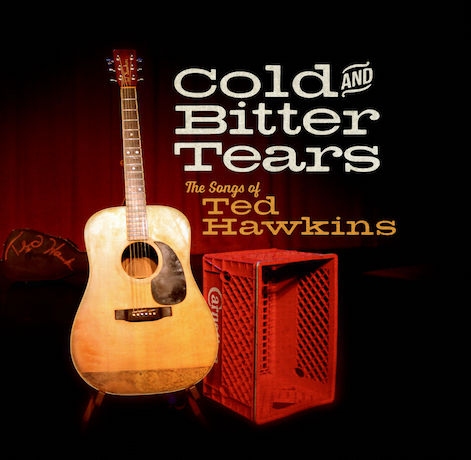When singer/songwriter Mary Gauthier plays the Grand Ole Opry, she knows the crowd can sense that she doesn’t quite fit the mold. “I can tell that the audience can tell that I don’t look like Carrie Underwood,” she laughs. “I’ve got a gay look. I don’t mean to have a gay look, but I’m gay!” The stage where country music was born wouldn’t be the first place to come to mind when considering where an LGBTQ+ person might belong, but the Opry house’s response to Gauthier isn’t cold or forbidding; in fact, it’s the opposite. “I’m going to stand up there. [My queerness is] going to be obvious. Some people will accept it, but some people will struggle with it. I’m going to talk to them as if they’ve already accepted it, and I’m going to send love out to them. My fear of rejection will not supersede my intentional effort to connect and be loving.”
Connection and loving are core values, a strong and sturdy backbone, through Gauthier’s music and life. She’s faced abandonment, addiction, and otherness, but through the struggles of her own life, she realized that loving others, seeing others, listening to others, and putting empathy out into the world are surefire ways to find healing within. Her new album, Rifles & Rosary Beads, is a perfect continuation of these practices. Gauthier has co-written an album of absolutely poignant, heart-wrenching songs with veterans of the armed forces, all the while focusing on not just loving, seeing, and listening, but propagating these skills, as well. The record is a sorely needed standard for how to traverse the divides and chasms that seem to criss-cross our country, society, and globe. Whether they exist between gay and straight, civilian and military, or left and right, the only bridge we need is empathy.
There’s this cliché or this stereotype that LGBTQ+ people and the military are diametrically opposed, whether this comes from issues such as the trans military ban or Don’t Ask, Don’t Tell, so it might surprise people that you took on this project. It must challenge the assumptions of some people who might not expect a progressive, LGBTQ+ person to collaborate with veterans.
I think the idea of the straight white guy soldier is a dated stereotype. That’s really not who our military is any more. In my experience working with members of the military over the last five years, the soldiers I’ve worked with look like people you’d see walking down the street in Manhattan. Our military is very diverse. It’s made up of all segments of society, including gay, lesbian, and trans people, people of color, Hispanic folks, and a whole lot of women. So we need to update our visuals around what we think a veteran is.
Today’s military scans 55 percent Democrat. People don’t know that. It’s a younger military. The conflicts in Afghanistan and Iraq are being fought by a group of people that are much younger than what you would think. We have to match our visuals to the reality of who’s wearing those boots on the ground.
I’d like to speak to the unsuccessful and failed trans military ban. The reason that it probably became an issue is because there are quite a few transgender people in the military. I don’t know the numbers, but it’s in the thousands. These are people who are volunteering to serve and are serving well. Our justice system has done the right thing in upholding their right to serve. Judgment about whether or not someone is worthy of service has not a thing to do with sexuality or gender.
Yes! Absolutely.
It’s irrelevant. It’s parallel. It has nothing to do with any of the requirements around the ability to serve. The justice system and the judges are upholding the current law because it’s the right thing to do.
When I listen to the album, I wonder how those veterans’ feelings — of loneliness, of facing a forbidding world that can’t really understand, of walking through life and not seeing oneself or one’s experiences reflected back by society, of coming home to a place that they don’t recognize anymore, to people who don’t recognize them anymore — these feel like they relate pretty easily to the queer experience.
I never thought of that. I don’t know. I’d hate to generalize. [Pause] What I do know is that an awful lot of our veterans are experiencing trauma — traumatic brain injuries and PTSD. The trauma that they carry becomes a life and death issue for them. It doesn’t heal itself. It doesn’t get better over time. It holds its own. We’re dealing with somewhere in the neighborhood of 22 suicides a day by military members.
There may be a parallel between that and the trauma a gay kid feels, being beat up. It’s a different trauma, but trauma is trauma. There’s been, as we well know, a huge problem with suicide in our gay kids. Now in our trans kids. The way that we’ve dealt with it, the way that works to help ease people’s burdens, is to tell them that we love them. We see them. They’re valuable. They matter.
I feel that message when I hear you singing these songs. I feel that emotion. I feel you, yourself, living through each of these co-writes with each of these veterans. I love that this is a testament to the fact that the “divisiveness” we hear about every single day is not actually a barrier between all of us.
Here’s what I know for sure: We’re in an empathy crisis.
Yes!
And this empathy crisis, from what I can see, has created a divide. The divide, politically, is between the left and the right, but we’re also in a civilian-military divide. Civilians don’t understand or even know people who have served in our military, particularly in the wars in Afghanistan and Iraq. But this divide started in Vietnam, after our soldiers came back really rejected and treated so poorly.
I think the divide can be bridged through empathy. The way I know how to create empathy is through song — not preachy songs, not songs that tell people what to think, but songs that tell the story of what people are going through, so that we can see inside and know how they feel. This is the job of the artist and the job of art — to generate connection and empathy. That’s my belief.
So [when writing for Rifles & Rosary Beads] we stayed away from ideology. We stayed away from policy. We stayed away from lecturing. All politics is off-limits. These are songs that tell important stories. If you want to come up with policy after you empathize, that’s whole different discussion. In my years of writing with soldiers, I have never gone to politics ever, because it’s not going to get us a good song! It’s just going to be a rabbit-hole, and we’re not going to get where we need to go to get to a good song, which is connecting and feeling each other, knowing each other’s heart. Whether or not we agree with the politics that got us into the war — wars — is one thing, but I think we can agree that those who served, who are hurting, who are struggling, who are in pain, who need our hand, we can reach out to them.
That makes me think about roots music’s transportive quality. These genres came out of very downtrodden, forgotten places as a vehicle to take people out of the harsh realities of their everyday lives. I’m convinced that that quality of roots music really is available to everyone, whether we’re talking about someone who’s LGBTQ+ or these veterans.
There’s a couple of big thoughts in there. One is, roots music is the best place for story songs. The best music always comes from the worst pain, from the soul howling in pain. “Does anybody see me?” “Am I alone here in my sorrow?” The response to that call is, “No, you are not! We see you! We feel you!” This is why singing the blues together makes you feel better. There’s an alchemy that happens when you’re able to sing your sorrows inside a group, singing not alone.
At the end of the day, the important thing about writing with people who are dealing with trauma, particularly veterans, is giving voice to something that is very, very hard to talk about. It may even be ineffable. There may be no way to talk about it, but we can sing it. We know it, when we sing it. We feel it. That is, I think, one of the most important uses of songs — to reach the ineffable. Melody helps move meaning into people’s hearts.
On the song “Brothers,” I felt the Venn diagram between the LGBTQ+ experience and the military experience overlap the most. The line, “Don’t that make me your brother, too?” Coming from the perspective of a female soldier, it is such a distillate of what we’re trying to accomplish with empathy, reaching out to people who have opposing views. Where did “Brothers” come from?
It came from these two women’s experiences. They lived it. My co-writers lived it. They were of the first generation of females in our military sent to combat. At the time, all of the language was male. They served with valor and courage in a situation that was really, really hard for them. What the females went through is a whole lot like what people of color went through when the military was integrated. It was very difficult.
There was a moment, after [one of the women] got home, when one of their friends raised the flag on Facebook on Veterans’ Day for “all the men who served.” She was shot at. She was in combat. She would’ve died for her brothers. She felt very excluded by the sexist language. The statement [in the song], “Say it for me. Say it for your youth. Your sisters are your brothers, too,” is a howl. “Don’t you see me? What do I have to do to be seen?” Of course, every marginalized community has had that howl. “What do I have to do to get your respect? I’ve done everything within my power, and I’m still invisible. I am hurt and I want to be respected.”
Honestly, in the five years I’ve been doing this, the language has been changing. Now people in the military, when they speak of the kinship, I’m hearing more and more “brothers and sisters.” It’s expanding. The first generation of female combat veterans had it hard, but it’s changing because people like them are brave enough to stand up and say that it hurts. It’s not “servicemen,” it’s “service members.” It has to be updated. They’re going to get there, but it takes time and people get caught up in a culture that doesn’t see them.
I want to ask you about that. You were recently on Sarah Silverman’s Hulu show, I Love You, America, and the overarching message through the show, which is somewhat radical these days, is seeing people — seeing people for who they are, accepting people for who they are. You being a guest felt so natural, because this is kind of the backbone of what you do as an artist, as well. Like you said, empathy first, empathy through song. How do we spread this idea? How do we translate and illustrate this intensely personal and individual reality of being on the fringes of society to help others understand the importance of empathy, of choosing to see people?
It’s a big question. No easy answer. What we can do, for example, is what I’m doing. To come out, to be seen in the truth of who we are, and to challenge people’s prejudices through loving, through kindness and tenderness and love. I’m working with veterans because I love them. Because I love them, it would be very difficult for them to reject me because I’m gay. They’re in a place, most of them, where they’re so grateful to be seen and loved that they open their arms and bring me into their family. I couldn’t have imagined five years ago, starting this, that it would lead me here. There’s a place for going in the streets and protesting, but there’s also a place for what Sarah [Silverman] is doing, what I’m trying to do, what Brené Brown is talking about, what Father Gregory Boyle over in Los Angeles is tackling with the gangs. What we’re talking about is sitting down and listening.
We may not agree on a single thing, politically, so let’s not talk about politics. Tell me how you feel. Tell me how it was for you, coming back from the Middle East. Tell me what it’s like now. Where does it hurt? I’m listening. I’m not in judgement. I think that empathy and listening is a big damn deal. What maybe happens when we’re young — I’m older now, you know? — when we’re young, we want to be heard. I wanted to be listened to. I felt as though what needed to happen was people needed to hear me. I’m older now, maybe it’s emotional maturity, but I realized what might be even more transformative, instead of me demanding that I be heard, is that I sit down and listen to other people. To give them the empathy that heals me. This is cliché sounding, but what I get from this work far, far surpasses what I give.
I love that. It’s one of my favorite things about these conversations. If we’re open and vulnerable and real with each other, we will constantly be surprised by each other in the best way.
Yep. And we find each other.
Photo credit: Laura E. Partain
